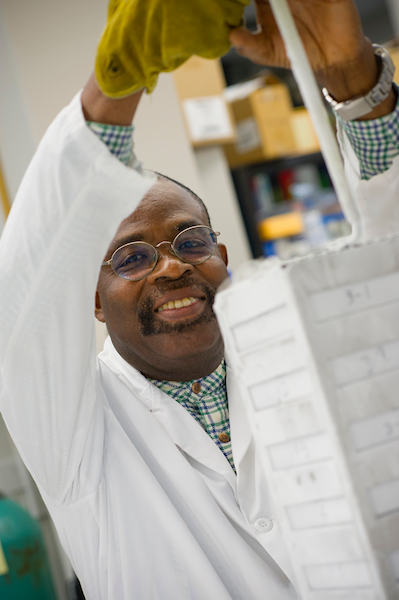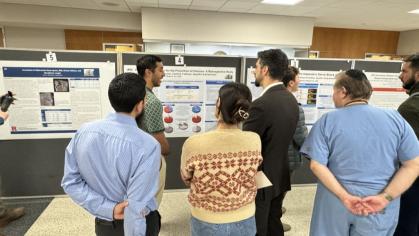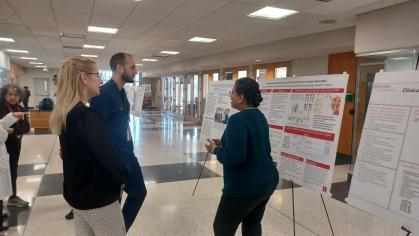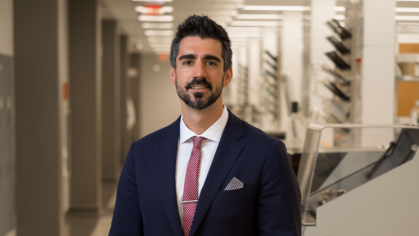RSDM Researcher Leads Group of African Biomed Scientists
At a convention of The Federation of American Societies for Experimental Biology 20 years ago, Dr. Vincent Tsiagbe and his colleagues noticed seven black scientists there.
“You don’t often see people who look like me going into biomedical science,’’ he says now.
Those seven scientists became the first members of the Association of African Biomedical Scientists. “We had our first meeting right there on the convention steps,’’ said Tsiagbe, who is president of the Association.
A professor in RSDM's oral biology department, Tsiagbe researches the role of endogenous retrovirus in frequent types of B cell lymphomas. The work has received grants from NIH, including a $1.2 grant from NIH National Cancer Institute. Important findings include the development of reagents to detect aggressive cancer by histology, which is the study of microscopic cells and tissues. His research involves a non-invasive method of detection from patients' saliva.
Tsiagbe began his career in science studying immunology. He returned briefly to Ghana to study Burkitt’s lymphoma, a form of Non-Hodgkin lymphoma that mostly afflicts people in west and central Africa.
A major goal of the association, which now has over 500 members, is to foster the development of science in Africa and promote career development opportunities for Biomedical Scientists in North America. “There are not enough opportunities,’’ he says.
Each year, they hold a meeting at the conference of The Federation of American Societies for Experimental Biology, where predoctoral and post-doctoral students, fellows and faculty give oral or poster presentations. While the association has helped aspiring scientists in Africa, it has also helped students at the Graduate School of Biomedical Sciences (GSBS) and RSDM.
“My role at GSBS, as Assistant Dean for predental programs, has enabled me to motivate minority students to apply to dental schools. I have had great success in mentoring students of African descent who wanted to go dental school,’’ said Tsiagbe. “When they came into the program, they often felt discouraged, but with persistence, mentoring and guidance, they turned out to be very successful.”




